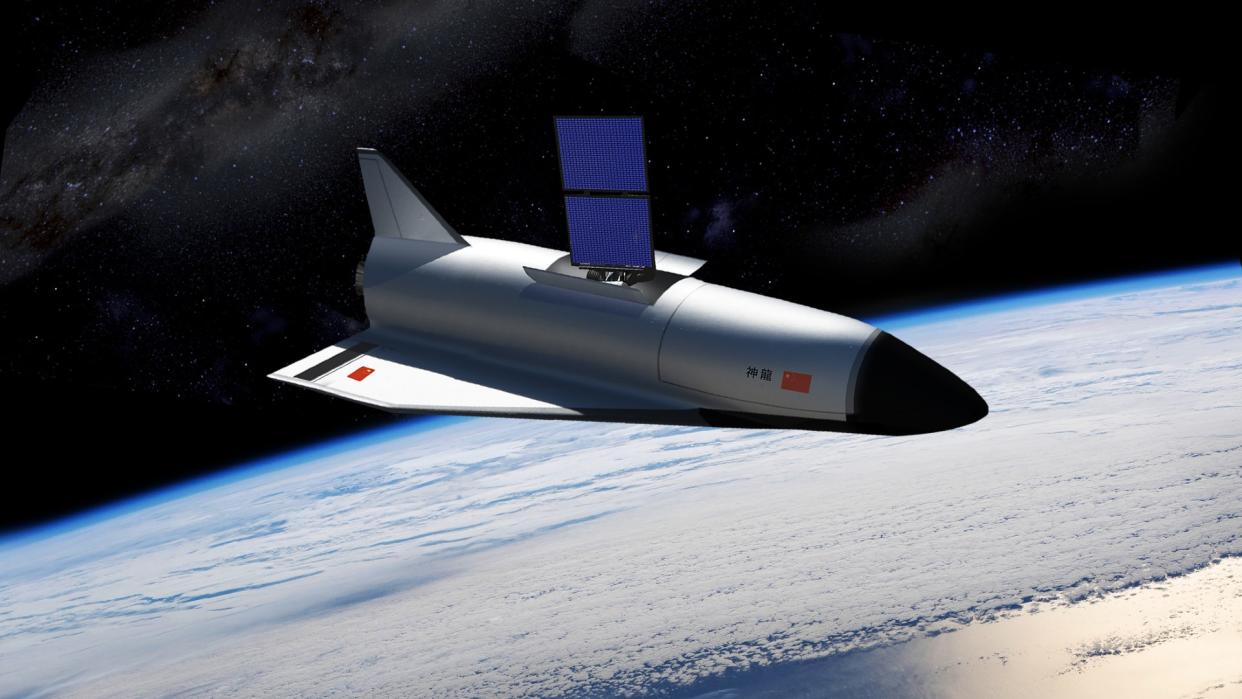China's mysterious space plane returns to Earth after 9-month orbital mission

The second orbital mission of China's robotic space plane has come to a close.
The mysterious reusable vehicle touched down Monday (May 8) at the Jiuquan Satellite Launch Center in northwest China, wrapping up a 276-day mission to Earth orbit, according to China's state-run Xinhua news agency.
"The success of the experiment marks an important breakthrough in China's research on reusable spacecraft technologies, which will provide more convenient and affordable round-trip methods for the peaceful use of space in the future," Xinhua wrote in a brief update on Monday.
Related: The latest news about China's space program
The space plane launched from Jiuquan on Aug. 4, 2022, kicking off a mission short on details but long on intrigue.
On Oct. 31, for example, the vehicle ejected something into orbit. Some experts speculated that the object was a service module, possibly indicating that the space plane was getting ready to return to Earth.
Others posited that the new free flyer was a small satellite designed to monitor the Chinese space plane — perhaps the correct guess, given how much longer the robotic spacecraft stayed aloft.
Related stories:
— Debris from Chinese rocket crash found in Indonesia and Malaysia
— The US Space Force's secretive X-37B space plane: 10 surprising facts
— US military's mysterious X-37B space plane sets new spaceflight record
The Chinese space plane's first orbital mission, which took place in September 2020, lasted just two days.
Western experts think the vehicle is roughly similar to the U.S. Space Force's robotic X-37B, which is about 29 feet (8.8 meters) long. The U.S. military is similarly tight-lipped about the X-37B, which has flown six orbital missions to date, the longest of which lasted 909 days.
Mike Wall is the author of "Out There" (Grand Central Publishing, 2018; illustrated by Karl Tate), a book about the search for alien life. Follow him on Twitter @michaeldwall. Follow us on Twitter @Spacedotcom or on Facebook.

